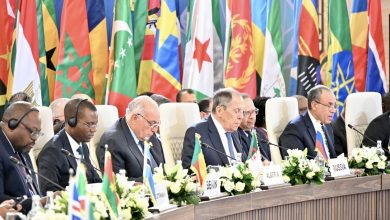In the wake of the recent Hamas attack, we must reevaluate the viability of the “two-state solution” for Israel and Palestine. Here are five key conclusions to consider:
- Extremism in Power Weakens the State:
The attack on October 7th revealed a deeply divided Israeli society, where political decisions are being made that could threaten the democratic foundations of the state. Prime Minister Benjamin Netanyahu’s pursuit of legal reforms to protect himself from corruption charges has put Israel on a dangerous path. He has made compromises with extreme right-wing elements and allowed the expansion of settlements in Arab territories, causing widespread protests and concerns about the nation’s democratic principles and security. - Perilous Escalation and a Never-Ending Conflict:
The magnitude of the attack, the brutality exhibited by the attackers, and the substantial number of casualties have led to comparisons with major historical events like 9/11 and Pearl Harbor. Such pivotal moments often trigger protracted and large-scale conflicts. This current conflict could also complicate U.S. efforts to normalize relations between Saudi Arabia and Israel and potentially incite Palestinian uprisings in the West Bank. Iran’s influence in the region may lead other countries to align with Hamas against Israel. - Collapse of the “Two-State Solution”:
The Palestinian Authority, led by Mahmoud Abbas for 19 years, is mired in corruption scandals and suffering from a legitimacy crisis. In Gaza, Hamas, initially elected in 2006, has failed to hold further elections and keeps a population dependent on international aid. Neither Hamas nor the Palestinian Authority can provide their people with basic services and lack the legitimacy to govern a functional state. Israelis now perceive them as an existential threat, casting doubt on the viability of a two-state solution. - Russia’s Opportunistic Role:
While there’s no direct evidence of Russia’s involvement in the Hamas attack, it can be seen as a consequence of Russia’s military engagement in the Middle East, particularly in Syria alongside Iran. Russia seems to benefit from global disorder and increased instability in various regions, including Israel, Kosovo, the Caucasus, and Africa. By exploiting divisions between the West and the Global South, Russia aims to strengthen its position globally. - European Union’s Need for a Shift in Approach:
The Hamas attack has exposed divisions among EU member states and a lack of unity within European institutions. Initially, there was an announcement of the total suspension of EU funding for the Palestinian Authority, but this decision wasn’t coordinated with European capitals, leading to conflicting opinions on the matter. The EU provides substantial financial support to the Palestinian Authority, and a hasty suspension could indirectly benefit terrorist organizations. EU policymakers must rethink their approach to ensure that their aid doesn’t inadvertently support terrorism while promoting the establishment of a viable Palestinian state.
These five conclusions underscore the complexity and volatility of the situation in the Middle East. As the world watches the ongoing conflict, it becomes increasingly crucial for all stakeholders to contemplate new political and security frameworks for the region, as the traditional “two-state solution” appears to be faltering.




